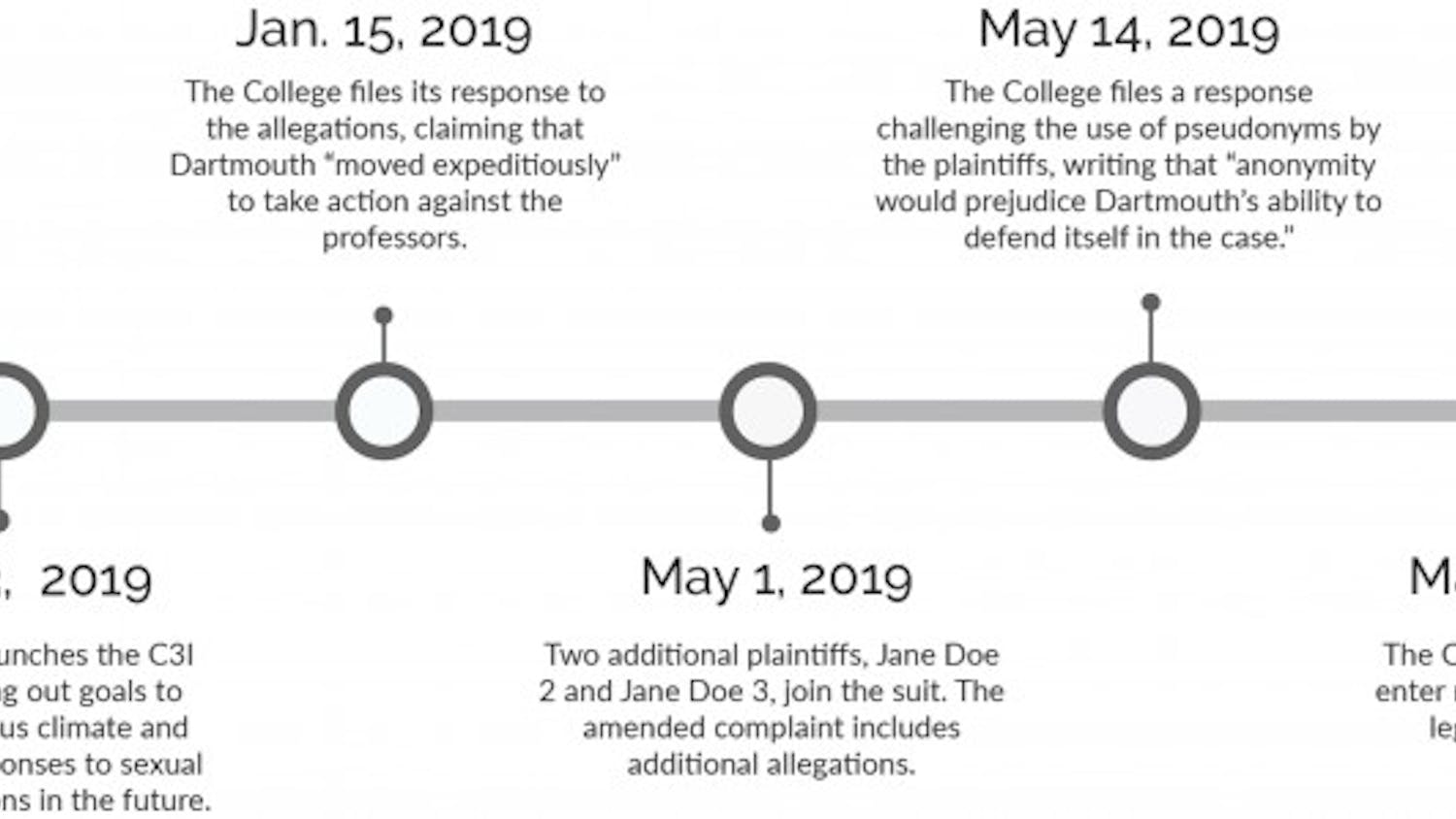On May 6, while wall-to-wall COVID-19 coverage dominated the media, the Department of Education quietly released an updated set of Title IX guidelines. These new policies have amounted to, in the words of Dartmouth’s Title IX office, a significant change in “the definition and scope of sexual misconduct” and surrounding processes.
The new Title IX guidelines will usher in a number of dramatic and detrimental policy changes. The College’s Title IX office will no longer be able to address complaints that occur off college property, thereby placing abuses that occur in off-campus housing or on Foreign Study Programs outside of the College’s purview. Dartmouth will also be required to allow direct cross examination at any Title IX hearing. And critically, the definition of sexual harassment will be narrowed, now pertaining only to “unwelcome conduct” deemed “severe, pervasive and objectively offensive.” Dartmouth now has until August 14 to comply with these new regulations.
The new guidelines amount to a rollback on protections against sexual violence. The guidelines drastically restrict the range of violations under the jurisdiction of the Title IX office and disproportionately harm survivors of sexual violence. Although we do not agree with these new policies, we do not suggest that the College act in defiance of federal mandate. Instead, in order to best prevent future misconduct and protect survivors, Dartmouth must expand the use of its Standards of Conduct, as well as increase its available resources for those impacted by sexual harassment and assault.
The new Title IX guidelines will — on a federal basis — narrow the definition of sexual harassment and limit the situations in which the College can act against it. The new definition is too narrow, and the College must continue to stand against sexual violence, regardless of the federal government’s attempts to the contrary. For the College to fully capitulate to these new regulations would amount to an unacceptable negligence regarding the safety of the Dartmouth community.
Fortunately, however, Dartmouth retains the ability as a private institution to punish supposedly “lesser” instances of sexual misconduct and preserve protections for survivors through its Standards of Conduct. The Standards define the rules that Dartmouth students are obliged to follow, emphasizing a “respect for the rights of others,” and threatening disciplinary action against those who fail to adhere to the regulations. The Standards of Conduct already contain articles relating to sexual misconduct, harassment and gender-based violence, but they are currently overseen and enforced by the College’s Title IX office — blunting their future utility.
The College could, however, add provisions to the Standards of Conduct that encompass those acts of sexual misconduct no longer included under the Title IX umbrella. Dartmouth has substantial leeway to define acceptable and unacceptable behavior — and despite the new guidelines, sexual violence of any kind remains unacceptable. Adding provisions to the Standards of Conduct would allow the Office of Community Standards and Accountability to adjudicate over cases of sexual misconduct no longer covered under Title IX, allowing Dartmouth to protect its community members — albeit under the auspices of appropriate student behaviour and not federal policy. This tactic would place misconduct in off-campus buildings and programs abroad back under Dartmouth’s jurisdiction, and allow for adequate responses to a range of sexual misconduct.
The expanded use of the Standards of Conduct alone, however, would be insufficient in tackling the effects of the new Title IX guidelines. The new requirement to allow direct cross examination at any hearing — with the consequent additional trauma to survivors of sexual violence — will become an unavoidable obstacle, regardless of changes to the Standards of Conduct. And as the College will be unable to address this issue directly, it must instead expand the resources and support available to survivors.
In light of the new Title IX guidelines, Dartmouth should not be silent on issues of sexual assault and harrassment. It must instead make clear to its wider community that it will continue to act to protect survivors and prevent, wherever possible, future instances of sexual violence.
When this pandemic finally ends, all Dartmouth students deserve to return to a campus on which they feel physically safe. New federal policy has made this a harder goal to attain. But the College must not retreat in the face of these guidelines. It must instead redouble its efforts to assist survivors and protect its community.
The editorial board consists of opinion staff columnists, the opinion editors, the executive editors and the editor-in-chief.



